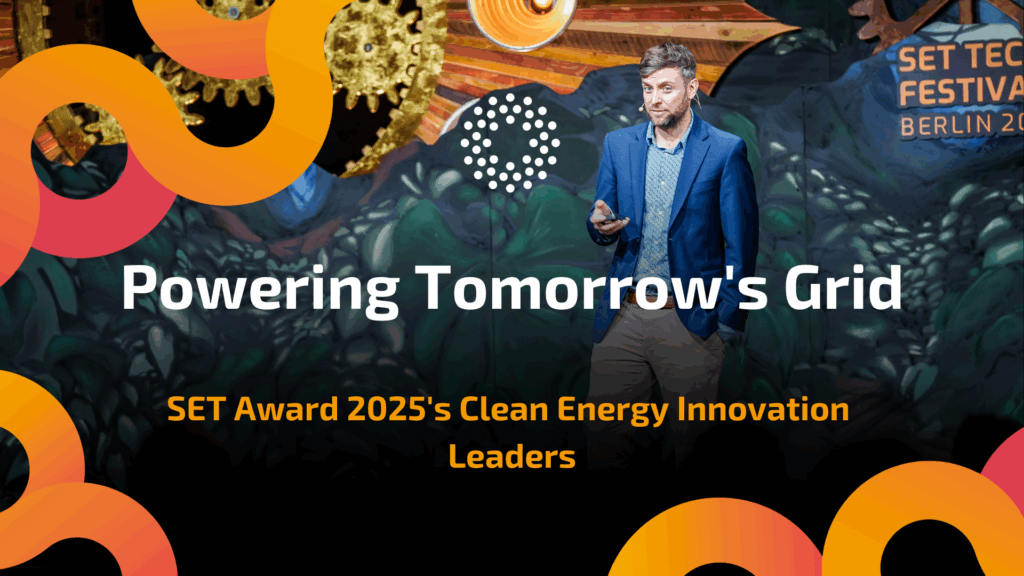How could renewable energy technologies help build better and greener energy systems? The complexity of the energy transition urgently calls for innovative solutions. In this year’s welcome address to the very first online version of the SET Week, Dr. Angela Wilkinson from the World Energy Council and Andreas Kuhlmann, CEO at the German Energy Agency (dena), emphasize the need for interdisciplinary solutions. „Innovation and collaboration is key“, said Dr. Angela Wilkinson, as poverty, hunger and health crises all interconnect with the lack of green energy. That is why institutions like the World Energy Council and dena can play a crucial role as facilitators.
Google: Renewable energy for carbon-free data centers
In the past few years, pledges from corporates towards climate neutrality have been increasing and represent a promising milestone in the process of energy transition. Let’s have a look at Google as an example. Since 2017, the company is supplying the data centers with renewable energy. And as Neha Palmer, Head of Energy Strategy at Google, stated in the panel, the American company also recently committed to run on 24/7 carbon-free energy by 2030.
Why exactly are pledges like these important? For once, it does offer the possibility for the public to hold corporates accountable. It also sets a precedent that encourages others to follow and gives start-ups an incentive to invest into data storage, software and grid data. Because, as Neha Palmer resumed, they are essential in meeting the pledges.

Climate Focus: The use of nature-based and tech-based solutions for more effectiveness
As it is impossible to abate all carbon emissions in the near future, governments and companies heavily rely on tech solutions. Very promising are the news from the world’s leading direct air capture company Climeworks. While the technology is robust and ready to be implemented, the challenge is now to reduce costs, Christoph Beuttler, CO₂ Removal Manager at Climeworks, explains in the discussion.
In another panel, Prof. Dr. Charlotte Streck, Co-founder and Director of Climate Focus, warns about delaying current efforts in carbon reduction in anticipation of future carbon removal technologies from companies like Climeworks. There is no question that these technologies will be essential in reducing CO₂ levels. However, implementing renewable energy technologies at a large scale, such as solar and wind, has implications for available space and land. This is why nature-based solutions for carbon reduction play a large role in the near future. These solutions are also relying on technology. Prof. Dr. Streck further explains that technology is enabling the use of efficient nature-based solutions. Monitoring carbon loss, identifying areas in which forests can be restored and finding smart solutions for reducing food waste all depend on technologies.
Plug and Play: Impact investing for more renewable energy
Matthias Dill, Managing Partner at EIP, reflects on the evolution of impact investment: while impact investments used to be fairly disconnected from profits and were merely impact-driven, today impact investment has changed fundamentally. Renewable power generators, for instance, are scalable and profitable and oftentimes outcompete conventional power generators.
Today, impact investment does not compromise on investment returns any longer. It plays a crucial role in accelerating start-ups that bring the necessary skills and knowledge to generate innovation. Therefore, it is a powerful tool to reach climate targets. It further builds and strengthens those relationships and communities that are later vital in implementing successful products. The panel agrees that there is a language barrier between investors and founders. Livia Toth, Ventures Director at Plug and Play, encourages start-ups to communicate to potential investors that their solution is not only sustainable and innovative but will also be profitable.
Green Recovery and Green Innovation: International cooperation to achieve the SDGs all together
The panel about Green Recovery and Green Innovation in the Policy Making found international cooperation to be of crucial importance. As Patrick Child, Deputy Director-General at European Commission, put it: “We cannot afford to leave anyone behind”.
Further, Brian Dean, Head of Energy Efficiency and Cooling at Sustainable Energy for All, stated that there are multiple positive effects resulting from energy efficiency and electrification: health benefits, education, productivity, jobs. Therefore, achieving all the sustainable development goals relies on successful energy transition.

How does the future of energy transition look like? The SET Week 2020 showed that the field and its renewable energy technologies could not be more relevant and inspiring. The panels revealed that energy transition is not only at the heart of the battle against climate change but that it also is an essential puzzle piece in reaching all Sustainable Development Goals. This successful event encourages the SET team to continue supporting and promoting start-ups in the field of energy transition. The next event will be the annual SET Award which is now open for applications!


